Blog

Improving Puerto Rico’s Clean Water Supply
Got water? It’s a serious question. We often take it for granted that we will have water coming out of our taps – and that
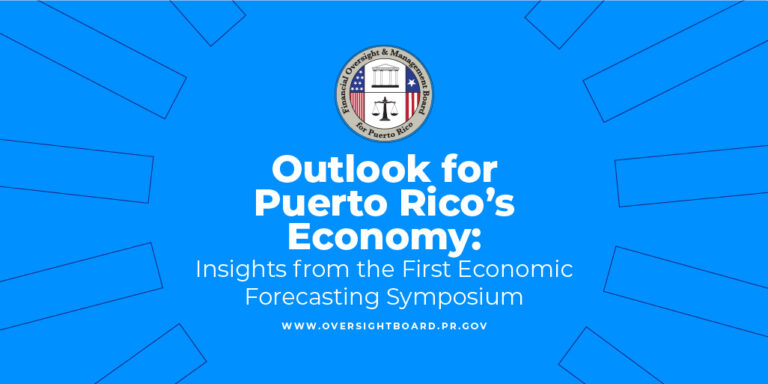
Outlook for Puerto Rico’s Economy: Insights from the First Economic Forecasting Symposium
https://www.youtube.com/watch?v=7ulqJwKLLGE&ab_channel=FinancialOversight%26MgmtBoardforPuertoRico Puerto Rico’s economy has been recovering from the shock of natural disasters and the COVID-19 pandemic, but growth has recently slowed. The long-term impact
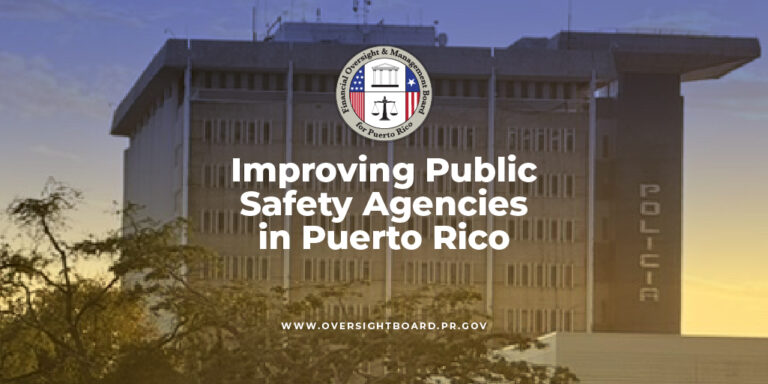
Improving Public Safety Agencies in Puerto Rico
Public safety is a fundamental responsibility of all governments, as it helps ensure the well-being and security of the general public and businesses. Maintaining law
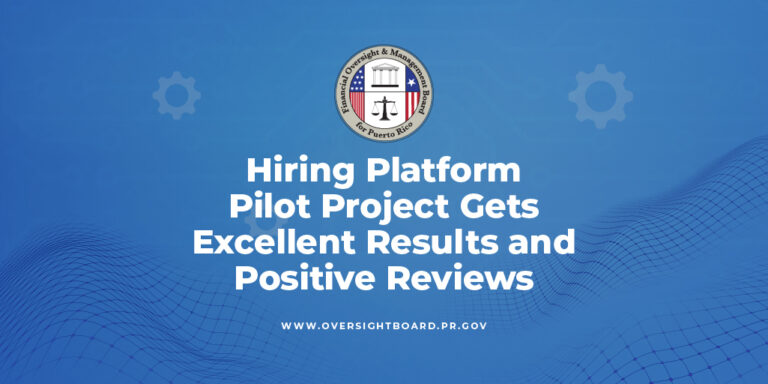
Hiring Platform Pilot Project Gets Excellent Results and Positive Reviews
Consider how Puerto Rico’s 56 government agencies currently hire civil servants: the hiring process is done manually, and many documents are often required to fulfill
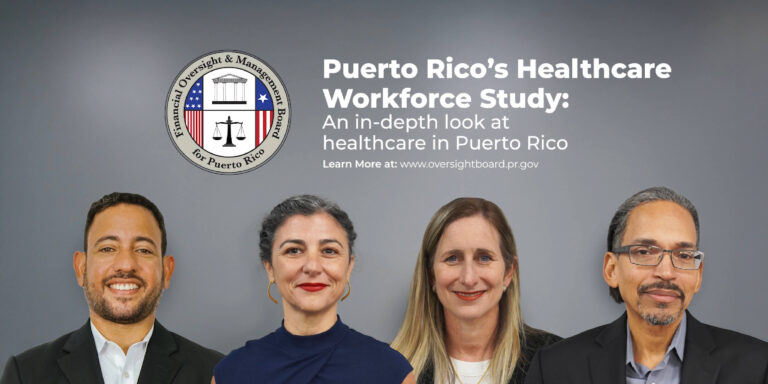
Puerto Rico Healthcare Workforce Study: An In-Depth Look at Healthcare in Puerto Rico
https://youtu.be/i8fev5BNy2Q?si=WP8d3tCsVwgHPaNz Healthcare is very important for Puerto Rico’s residents and one of the essential elements of the healthcare system is its workforce. The shortage in
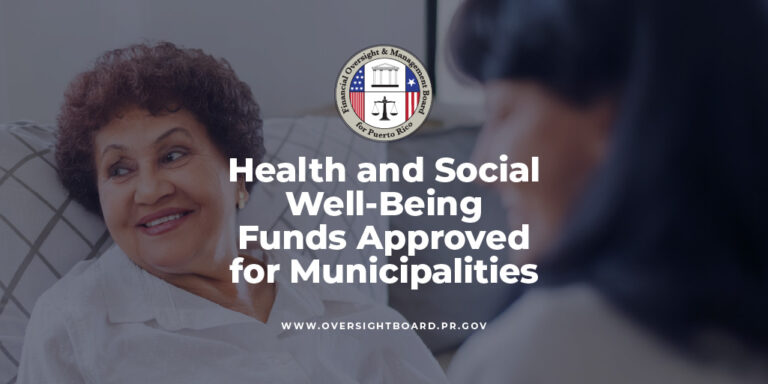
Health and Social Well-Being Funds Approved for Municipalities
In an emergency, we call 9-1-1. When we need assistance in caring for an elderly or disabled family member, the “Ama de Llaves” – or
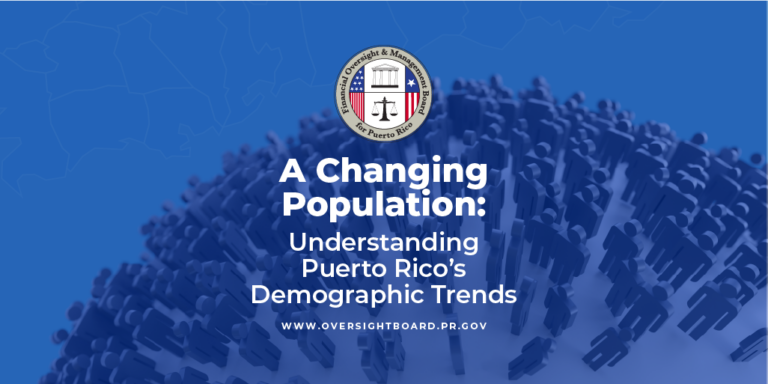
A Changing Population: Understanding Puerto Rico’s Demographic Trends
https://youtu.be/hbaE_WkO13Y A growing Puerto Rico requires a stable population with a healthy balance of all age groups, so children get the education they need, our
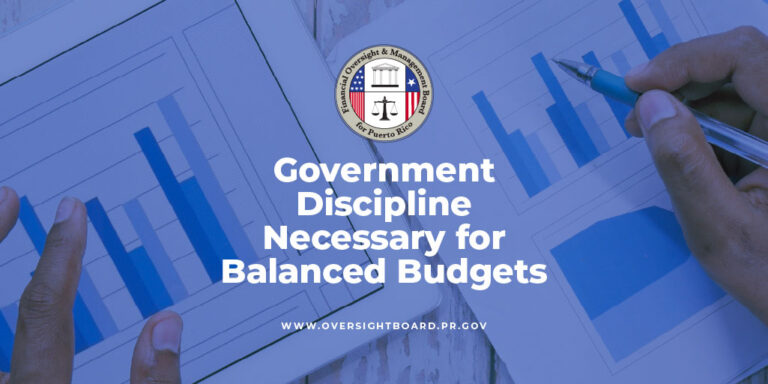
Government Discipline Necessary for Balanced Budgets
For the first 16 years of this century, the Government of Puerto Rico spent more money than it took in from revenues (taxes, fees, and
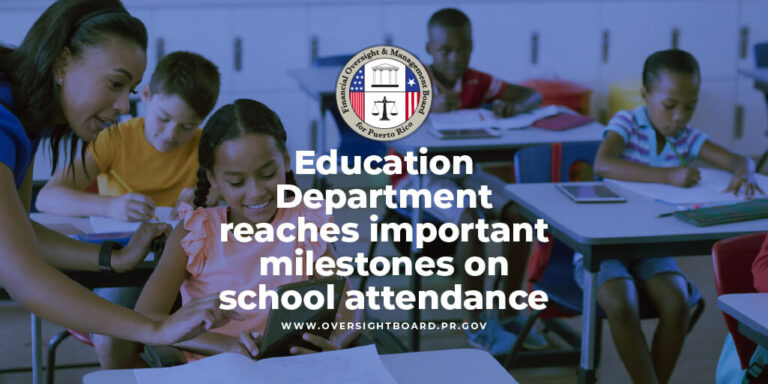
Education Department reaches important milestones on school attendance
The new school year started with students already better off in an education system with significantly improved teacher and student commitment to attendance. The Puerto
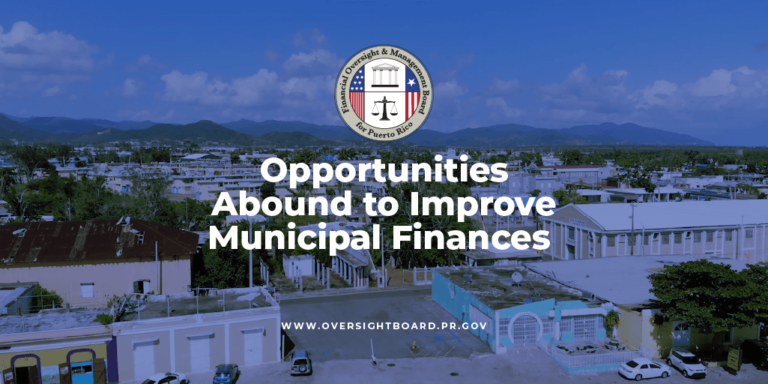
Opportunities Abound to Improve Municipal Finances
The Financial Oversight and Management Board understands that Puerto Rico’s municipalities play an important role in providing services to residents. Among the core services that
